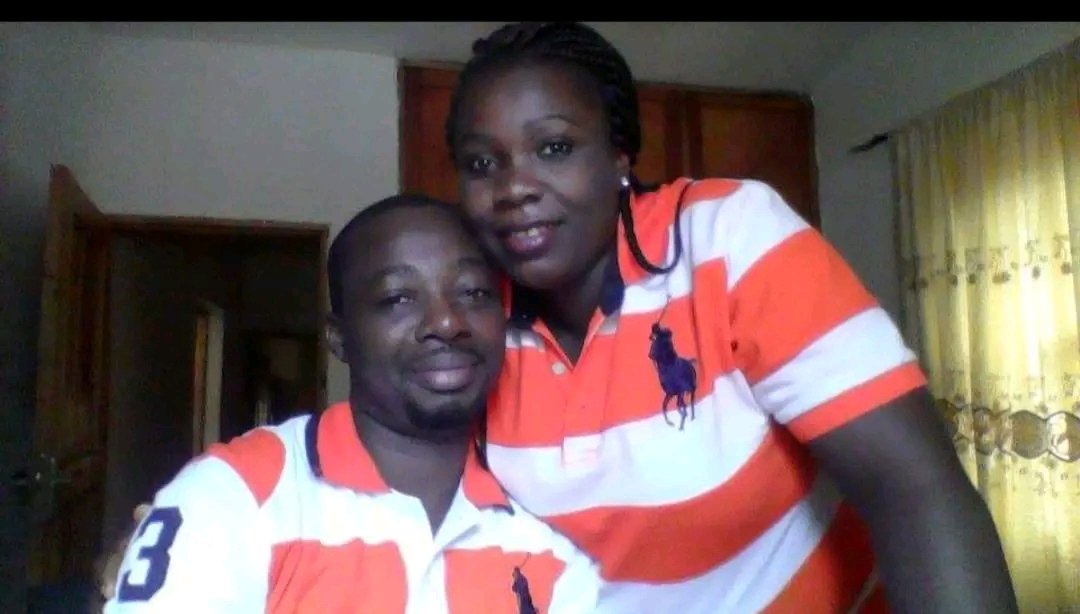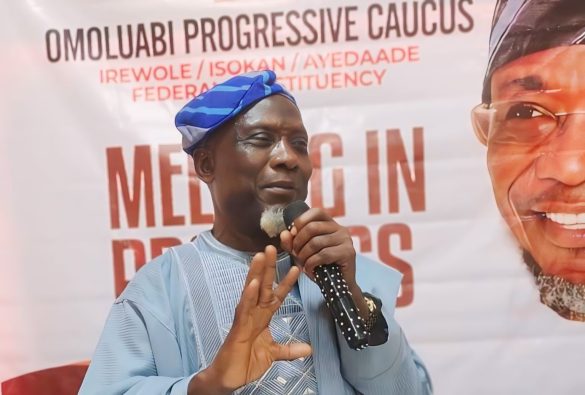Legality Of Posthumous GCFR Award To Chief Mko Abiola By Femi Gbajabiamila


On June 6th 2018, Nigerians were met with breaking news that President Buhari had done what many before him were unable to do. He had awarded the late MKO Abiola of blessed memory the highest honour of the land, the Grand Commander Of The Federal Republic and posthumously too.
This move has triggered a heated debate between pro and anti Buhari elements of our society. I will not jump into such fray, for to do so will be to debase and reduce the value of this particular award to this particular person. I believe politics should never be taken to the level that may tend to blunt the beauty and symbolism represented by actions such as this taken by the President.
We must be careful not to kill the joy of the Abiola family in an attempt to read the President’s mind and motives. Now even if it wasn’t done in good faith, a suggestion I completely disagree with, it should have been left alone if only for the sake of the memory of the man who paid the supreme price for the democracy we are all a part of today.
I will therefore limit myself to the legality of a posthumous award under the National Honours Act. I think I know a bit about the National Honours Act being a legislator and having been a nominee (though not a recipient), some years back. At the time I studied the Act to see how we could improve on it so it could achieve its objective as intended by its framers. This one award is peharps the most deserving in the history of the awards system in Nigeria.
The learned Jurist in whom I have profound respect, Justice Alfa Belgore rtd, has stated that the National Honours Act does not provide for posthumous awards except in the case of the military. I must beg to differ.
Firstly in interpreting any Act we must consider the intention of the drafters where and if there is ambiguity. In this case can it be truly argued that a Nigerian who gave his or her all to the country for instance an ambassador who maybe got us out of some major crisis abroad, or peharps Dr Stella Adadevoh who in a rare act of bravery saved the lives of millions of Nigerians and died whilst doing so cannot be honoured posthumously because she is not in the military?
Somehow I don’t think this was the intention of the law. Such would be preposterous. Now lets look at the express provisions of the law. Section 1 declares
“Subject to the provisions of subsections (4) and (6) of this section, the President may BY WARRANT (emphasis mine) make provision for the award of titles of honour, decorations and dignities (in this Act collectively referred to as “honours”)
Subsection 3 provides:
“A warrant under this section may make different provisions FOR DIFFERENT CIRCUMSTANCES (emphasis mine)……”
and Subsection 4 says
“ The power to make awards in pursuance of a warrant under this section SHALL be exercisable by the President in accordance with the provisions of the constitution of the Federal Republic of Nigeria, 1999”
The combined reading of these sections makes it abundantly clear that
The powers of the President in conferring an award or honour under the National Honours Act are wide and unfettered and he need not consult with any committee. Indeed the National Honors Committee (I stand to be corrected) is unknown to the Act and a creation of the presidency itself, perhaps for ease of administration).
Nowhere in the Act does it say the President must consult with anyone in exercising his powers. It is by executive fiat! For those who may want to make reference to the Council of State in the constitution, it’s role, is merely to advise on national awards where such is sought or needed by Mr. President. Nothing in the constitution makes it mandatory for him to seek such advise.
The Act does not exclude posthumous awards. If not excluded expressly it cannot be implied. Indeed subsection 3 referred to above adequately covers posthumous awards with the general words “FOR DIFFERENT CIRCUMSTANCES”. Yes posthumous awards are specifically spelt out in the military category for whatever reason only God knows.
Even in that category, not all military men are entitled. It depends on your rank and not all categories of military awards can be conferred posthumously. This is inelegant drafting at best and must be amended. To come to any other interpretation other than the above will be preposterous and illogical to say the least.
To drive home the point, subsection 5 is the most telling. It provides:
“ A warrant under this section may provide that the warrant shall have effect as if it had been made on such date (not being earlier than the day when this Act is deemed to have come into force ) as may be specified by the warrant, and an honour……………….shall be deemed to have been awarded in pursuance of the warrant”.
In other words the award can be backdated and therefore posthumous!!!!!!
Lets read a little further.
Section 2 deals with eligibility of appointment and the only qualification is citizenship. Nowhere does it talk about being a living person.
Going further yet again, Section 3 of the Act refers to Mode of appointment and states clearly that all the President need do is to publish same in the official gazette. Section 3 subsection 3 states that the award is to be presented by the President to the recipient in person but yet again making room for posthumous awards, it goes further in subsection 3 to allow for presentation in absentia. It states;
“If in the case of any person it appears to the President expedient to dispense with the requirements of paragraph 2 of this article, he may direct that that person shall be appointed to the rank in question IN SUCH A MANNER (emphasis mine) as may be specified in the direction.
In other words award can be given posthumously and received by his heirs in succession .
In any case, it must be noted that section 42 of the Constitution comes down hard against any law or policy that tends to discriminate and for me a law that allows for posthumous awards to the military and not to civilians is discriminatory and cannot stand constitutional muster.
Furthermore where there is ambiguity we must always look at international best practices.
Finally I would want the President to go beyond this and exercise his powers under Section 7 of the Act, titled deprivation, to strip all manner of undeserving past awardees dead or alive off their awards so that MKO Abiola can be in good company.
Congratulations to the Abiola Family. Well done Mr President .
*Femi Gbajabiamila is the Leader of Nigeria’s House of Representatives, Abuja










1 Comment
The Honourable majority leader of the house of representatives , I really thank you so much for enlightening Nigerians on this particular issue.
Wishing you all the best in life- Odufayo Festus